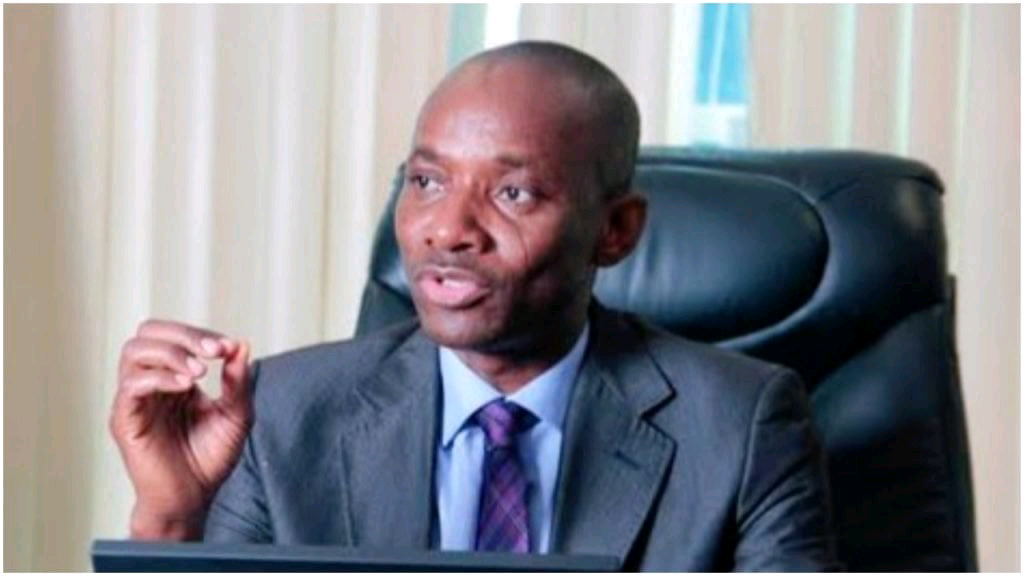In a pointed critique, Sam Amadi, Director of the Abuja School of Social and Political Thoughts, has questioned the seriousness of any political aspirants hoping to become Nigeria’s president in 2027 without addressing the perceived issues within the Independent National Electoral Commission (INEC).
Amadi’s comments came in the wake of the INEC’s announcement declaring Monday Okpebholo of the All Progressives Congress (APC) as the winner of the Edo State governorship election.
The result has sparked controversy, with opposition parties expressing concerns over the integrity of the election process.

Taking to social media platform X, formerly known as Twitter, Amadi expressed his scepticism about the potential for credible elections under the current INEC structure.
He wrote, “Anyone thinking of being the President of Nigeria in 2027 and not thinking of disbanding this @inecnigeria is not serious.”
The statement reflects growing frustration among political observers and opposition parties over what they perceive as deep-seated flaws within Nigeria’s electoral system.
Amadi, a former Chief Executive Officer (CEO) of the Nigerian Electricity Regulatory Commission (NERC), has been a vocal critic of the election body’s performance, particularly in recent elections.
The Peoples Democratic Party (PDP) has also voiced strong objections to the Edo governorship election results.
Tony Iyoha, the PDP’s state collation agent, raised concerns over the delayed announcement of results from two critical local government areas, Oredo and Ikpoba-Okha.
According to Iyoha, the delays were orchestrated to tamper with the figures in favour of the APC candidate, Okpebholo.
“We reject the results declared by INEC. The figures do not reflect the true voting patterns of the people,” Iyoha alleged, accusing INEC of manipulation. The PDP is reportedly considering legal action to challenge the outcome of the election.
This is not the first time Amadi has directed his criticism at INEC. He has repeatedly argued that the electoral body itself is a fundamental problem hindering Nigeria’s democratic process.
According to Amadi, the INEC’s structure and operational culture remain a significant obstacle to the conduct of free and fair elections in the country.
In previous statements, Amadi criticised both the Peoples Democratic Party (PDP) and Labour Party (LP) presidential candidates, Atiku Abubakar and Peter Obi, for their apparent lack of urgency in addressing these systemic issues.
He noted that neither candidate has taken decisive steps to challenge or reform the existing electoral system, which he believes is essential for restoring public confidence in Nigeria’s elections.
“Until there is a complete overhaul of how elections are managed, the credibility of any future elections remains in doubt,” Amadi warned, stressing the need for a comprehensive review of the country’s electoral framework.
Amadi’s remarks have sparked renewed debate about the future of Nigeria’s electoral processes. Many political analysts agree that reforms within INEC are necessary to safeguard the integrity of future elections.
The credibility of the electoral body has come under scrutiny, with accusations of bias, poor logistics, and manipulation surfacing in recent years.
As Nigeria approaches the 2027 presidential election, the call for electoral reforms is expected to intensify.
With critics like Amadi sounding alarms about INEC’s role in election management, the spotlight will likely remain on the electoral commission and the steps it takes to address these concerns.
Whether the political establishment will heed these calls and make significant changes to the country’s election management remains to be seen, but the dissatisfaction surrounding recent elections indicates a growing demand for accountability and reform.
As the 2027 elections draw nearer, one thing is clear: any serious presidential hopeful will need to consider not only their campaign strategies but also how to reform an electoral system that has been repeatedly criticised as being flawed.
Support InfoStride News' Credible Journalism: Only credible journalism can guarantee a fair, accountable and transparent society, including democracy and government. It involves a lot of efforts and money. We need your support. Click here to Donate
